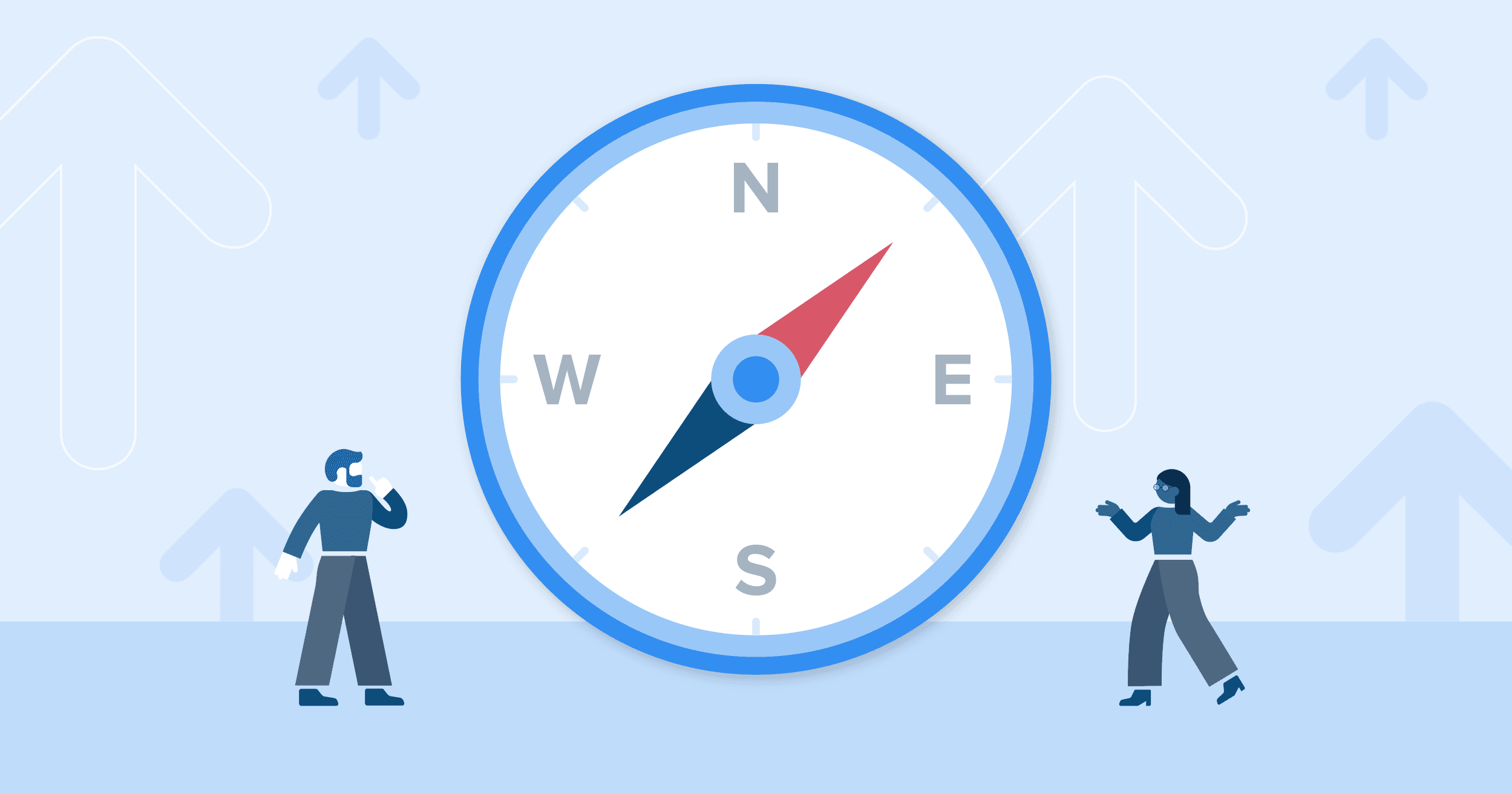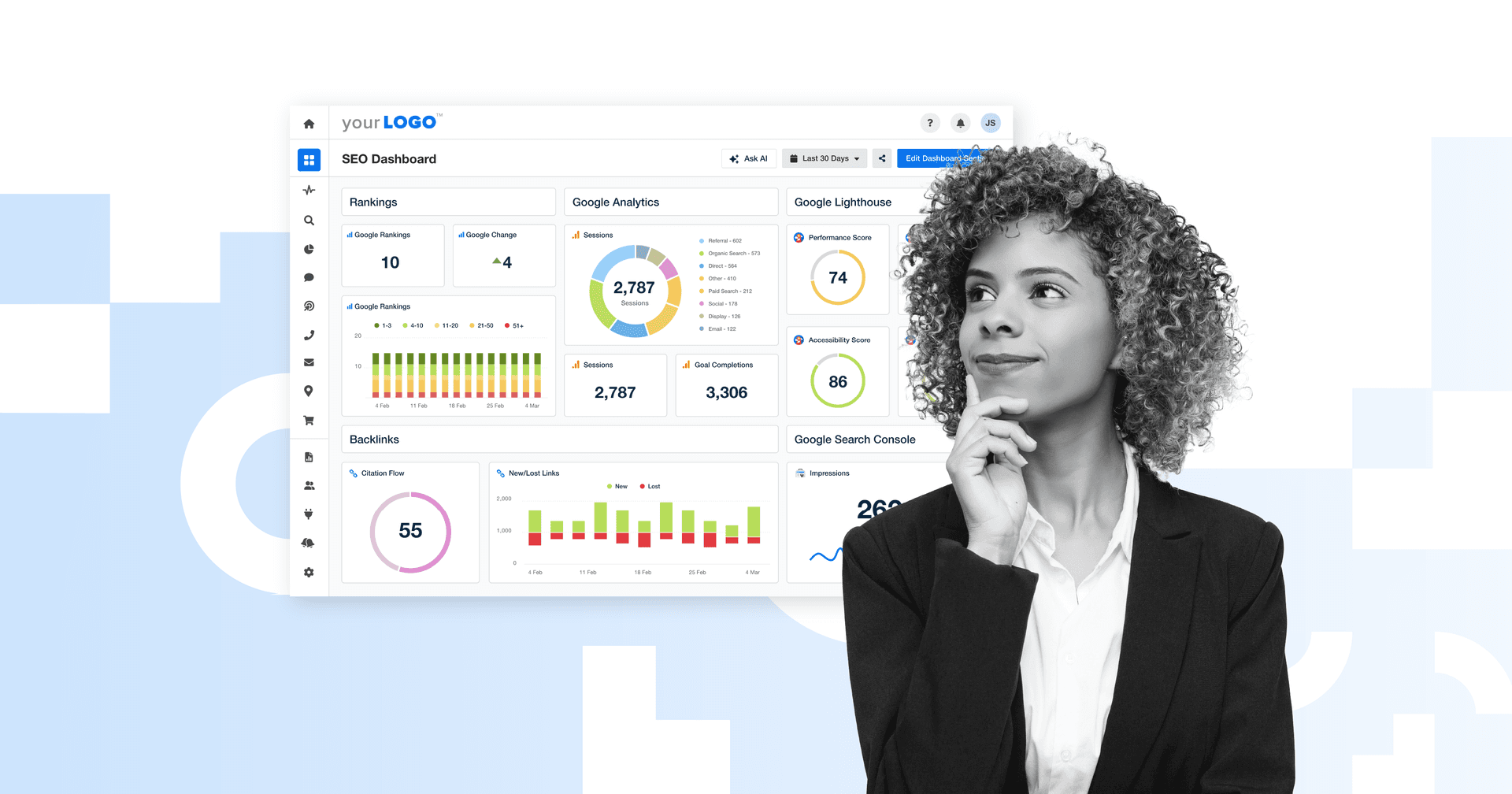Table of Contents
QUICK SUMMARY:
Learning how to develop leadership skills is one of the most important things a marketing agency leader can do, especially when navigating through challenging or uncertain times. Prioritizing leadership development helps business owners simultaneously learn strategic direction, enhance adaptability, and communicate effectively with their teams. This continuous learning pays off ten fold when addressing market shifts, client demands, and more. We're offering expert tips about developing leadership skills that result in long-term success.
Agency leaders must develop leadership skills to navigate the tumultuous seas of change and uncertainty–it’s part and parcel of the job. The dynamic nature of the industry, driven by constant technological advancements, economic fluctuations, and evolving consumer behavior, necessitates a leadership style that’s adaptable, resilient, and forward-thinking.
This article provides practical strategies and insights to help agency leaders accelerate growth and effectively steer their teams through these unpredictable circumstances.
The Inevitability of Change and Uncertainty
A study by McKinsey found that digital consumer adoption leaped five years forward in just eight weeks at the height of the pandemic. This forced agencies to pivot and adapt quickly, with many shifting their strategies to meet the new digital-first consumer behavior.
Let’s face it, though: it’s not unusual for marketing agency leaders to have to think quickly on their feet and develop leadership skills as an ongoing adaptation to change. While the pandemic presented us with some acute and unusual challenges, forever remaining ahead of the curve and constantly adapting to shifting consumer trends is nothing new.
In agency life, change and uncertainty aren’t an aberration from the norm but, instead, a steady constant that we should come to expect. Anyone working in the digital marketing space is still unpacking the impact of AI tools, figuring out how to handle the differences in Google Analytics 4, and responding to dramatic shifts in media consumption.
Knowing this, we can develop qualities and strategies to support team wellness and company growth within a shifting landscape.
5 Essential Traits You Need To Develop Leadership Skills in Times of Change and Uncertainty
While we may not have too much control over the changes occurring around us–be it economic or technological, or financial–we do have control over our response. Cultivating the following five qualities will help agency leaders remain cool, collected, and moving forward, no matter how hairy things get from the outside.
Adaptability is crucial in a landscape that's always shifting. Agency leaders must continually develop leadership skills and remain open to new ways of working, adjust strategies in response to changing circumstances, and create a culture that embraces change and innovation.
Resilience is the ability to bounce back from setbacks and maintain morale amidst difficulties. For agency leaders, this means fostering a resilient team culture where challenges are viewed as opportunities for learning and growth.
Strategic foresight involves anticipating future changes and being prepared for them. It's about staying informed, analyzing trends, and deciding how to position the agency for future success.
Vision is so valuable because, in times of uncertainty, it's easy for teams to lose sight of their goals. A leader with a strong vision can keep everyone focused on the ultimate objective, and articulate a clear path to reach that goal, even when the terrain is shifting beneath their feet.
Emotional intelligence allows leaders to recognize, understand, and manage their emotions and those of others. In periods of change and uncertainty, anxiety and stress levels run high. A leader with high emotional intelligence supports and fosters a positive working environment.
8 Practical Strategies for Navigating Change and Uncertainty
Several practical strategies can help agency leaders develop leadership skills to navigate these turbulent waters:
1. Lean into Innovation
Encourage a culture of adaptability and innovation at your agency. Foster an environment where ideas are welcomed and people are comfortable with trial and error. Establish regular brainstorming sessions or innovation workshops to generate creative solutions and identify new opportunities.
Once you’ve identified the changes that need to occur, ensure you have the support to reinforce your agency’s commitment to these concepts.
Real-Life Example:
UK SEO & PR Agency, Type-A Media, went fully remote very early in the pandemic, which meant they needed to review their systems and processes accordingly. With a dedication to growth and supporting the team, they hired an Operations Director to support this initiative and help them to remain responsive and adaptable.
2. Communicate Effectively and Transparently
Transparent communication is crucial to develop leadership skills. Keep your team informed about any changes and the reasons behind them. A well-informed team is more likely to understand, accept, and adapt to changes. Explain the reasons behind the decisions and provide context to help them understand the bigger picture. Encourage an open-door policy where team members can ask questions or share their concerns.
Similarly, communicating openly with clients during times of change can deepen relationships, develop your leadership skills, and enhance client retention. Don’t forget: Communication involves both speaking and listening. Listen to your clients’ experiences and set realistic expectations when the going gets tough.
We give a damn. We are the agency that is following up with you; we are there when you need us. We get results, but we are also just as focused on making sure that our clients feel like they are seen, heard, and respected. Our clients are our partners, and there's no such thing as too much communication.
Rachel Jackson, Lead SEO, Wit Digital
3. Plan for the Unexpected
Develop contingency plans and risk management strategies. While you cannot predict every possible scenario, being prepared for different outcomes can save valuable time and resources when a crisis hits.
How will your agency handle a sudden client departure? An integral team member leaving? A new technological advancement that creates redundancy in one of your offerings? Planning for these potential challenges ahead of time will make your team more agile should the events unfold in real-time.
4. Invest in Your People
Your team is your most valuable asset. Develop leadership skills that help them thrive. Prioritize their development and well-being to foster resilience. Provide opportunities for upskilling and continuous learning, whether through training programs, workshops, or industry conferences.
Encourage a healthy work-life balance and support their mental and emotional well-being. Foster a supportive, collaborative culture where team members feel valued and motivated. The scarier the circumstances, the more important it becomes that your team feels safe and supported while working with you. Investing in your team allows you to create greater employee loyalty and reduce turnover.
Real-Life Example:
Studio Eighty-Eight tackled this by continuously updating their skills and knowledge, investing in professional development, attending industry conferences and seminars, and actively researching emerging trends and technologies.
5. Foster Cross-Functional Collaboration
Develop leadership skills that foster collaboration. Encourage cross-functional collaboration within your agency by breaking down silos and promoting teamwork. Foster a culture where different teams can collaborate on projects, share insights and expertise, and collectively tackle challenges. This cross-pollination of ideas and perspectives eliminates blind spots and illuminates new possibilities.
Our team culture is one of positivity, support, and a shared focus on delivering results. We've fostered an environment that encourages collaboration, continuous learning, and a passion for success, and this has helped us attract and retain the best talent in the industry.
Adam Binder, Founder + CEO, Creative Click Media
6. Stay Informed and Adapt Proactively
Stay up to date with industry trends, technological advancements, and shifts in consumer behavior. Continuously analyze market conditions and gather relevant data to inform your decision-making process.
Another factor that has contributed to our growth is our team of experienced professionals. Our team includes experts in SEO, PPC, social media marketing, content marketing, and other areas of digital marketing, and we are constantly learning and adapting to stay at the forefront of industry trends and best practices.
Daniel Dye, President, Native Rank, Inc.
Be proactive in adapting your strategies and approaches based on emerging trends and changing circumstances. Encourage your team to stay informed as well and share their insights and observations. Agencies are trendsetters, not trend followers. Don’t be afraid to create a detailed vision of the future and make moves toward it.
7. Cultivate Client Relationships
Strong client relationships are crucial during times of uncertainty. Develop leadership skills and regularly communicate with your clients, understand their evolving needs and challenges, and provide proactive solutions to address their concerns.
Use automated client reporting to maintain transparency, set realistic expectations, and build trust. You strengthen client loyalty and secure long-term partnerships by demonstrating your commitment and ability to adapt to their changing requirements. Increasing your understanding of client needs prepares you to offer solutions that naturally continue the working relationship proactively.
Remember: Your clients may be feeling unsteady too. Turbulent times present you with the opportunity to be a consistent source of support and knowledge amidst confusion and uncertainty.
Real-Life Example:
Hannah Thorpe, Managing Director of Verkeer put extra time and effort into ensuring long-term client relationships were positive. To support clients in maintaining their active engagement with the agency while minimizing long-term risk, she introduced a "pay holiday." This initiative allowed clients to skip a month of payment temporarily. And rather than waiving the payment entirely, the agency extended the duration of the clients' contracts by adding the skipped month to the end. This approach provided them with short-term financial relief while ensuring that the overall commitment remained unchanged in the long run.
8. Create a Culture of Continuous Improvement
Encourage a mindset of continuous improvement within your agency and develop leadership skills to exemplify that. Regularly evaluate your processes, workflows, and strategies to identify areas for optimization.
Sudden change is more difficult for agencies that have resisted evolving their processes and questioning the status quo. By contrast, agencies that make a point of including iteration in their everyday operations will be better prepared when big surprises come their way.
Our mantra is Ugly, Early, Often–it's ok to make mistakes, it shows we're being creative and innovative, but we encourage the team to raise the "ugly" as early and often as possible so we can collaborate and work together towards a better solution and course-correct promptly to still meet the desired outcomes.
Rodrigo Campos, Founder & CEO, Splurge
Encourage feedback from your team and clients and use it to drive positive change. Don’t be afraid to have hard conversations and hear about the areas where there’s room for improvement. Implement agile methodologies that allow for flexibility and iterative advancements. Embrace a learning culture that prioritizes experimentation, learning from failures, and celebrating successes.
Case Study
When UK and Barcelona-based SEO and PR agency Minty Digital took on the support of The OMG Center and agency accelerator, they needed to develop leadership skills further and provide a lift in revenue to their agency, just as the delayed financial pinch of the pandemic hit.
They embarked on a multi-faceted approach to cover many business areas with a key focus on people, ops, marketing, and sales. This was underpinned by a renewed positioning and vision plan that now guides all internal growth decision-making. After incorporating critical changes to their operations, their net profit increased from 13% to 20%, with uplifted revenue from an additional 37% larger client base.
“It feels like, for the first time in years, we’ve been able to grab hold of the reins of our agency and have a clear mission, direction, and purpose for our team to follow,” recalls Charlie Clark, Founder of Minty Digital. “We’ve seen client retention, leads, and closing rates increase. Our branding now attracts new talent without us even needing to advertise for it!”
Conclusion
Remember, uncertainty isn't necessarily a negative. It can also present opportunities to develop leadership skills for growth, innovation, and development. Though change can feel scary at first, with the right mindset, your agency can wind up better than before the transition began.
Community and mentorship offer additional support in times of change. It's beneficial to seek out advice and learn from others' experiences. Speak to others in the industry, join forums and discussion groups, and attend webinars and conferences. Connect with peers who are also experiencing similar challenges and uncertainties and reach out to industry thought leaders and consultants who provide guidance based on years of experience and a broad perspective on the industry.
Facing a challenge? It can be helpful to have a conversation with someone who has been there. Let's continue to learn, adapt, and grow together in this ever-changing industry.

Written by
Chris Simmance is the Founder of The OMG Center, a growth, mentorship, and training center for digital agency owners. With ten years of leadership experience, Chris is also a Digital Agency Coach and works with clients across all levels to help them reach their goals.
See how 7,000+ marketing agencies help clients win
Free 14-day trial. No credit card required.





